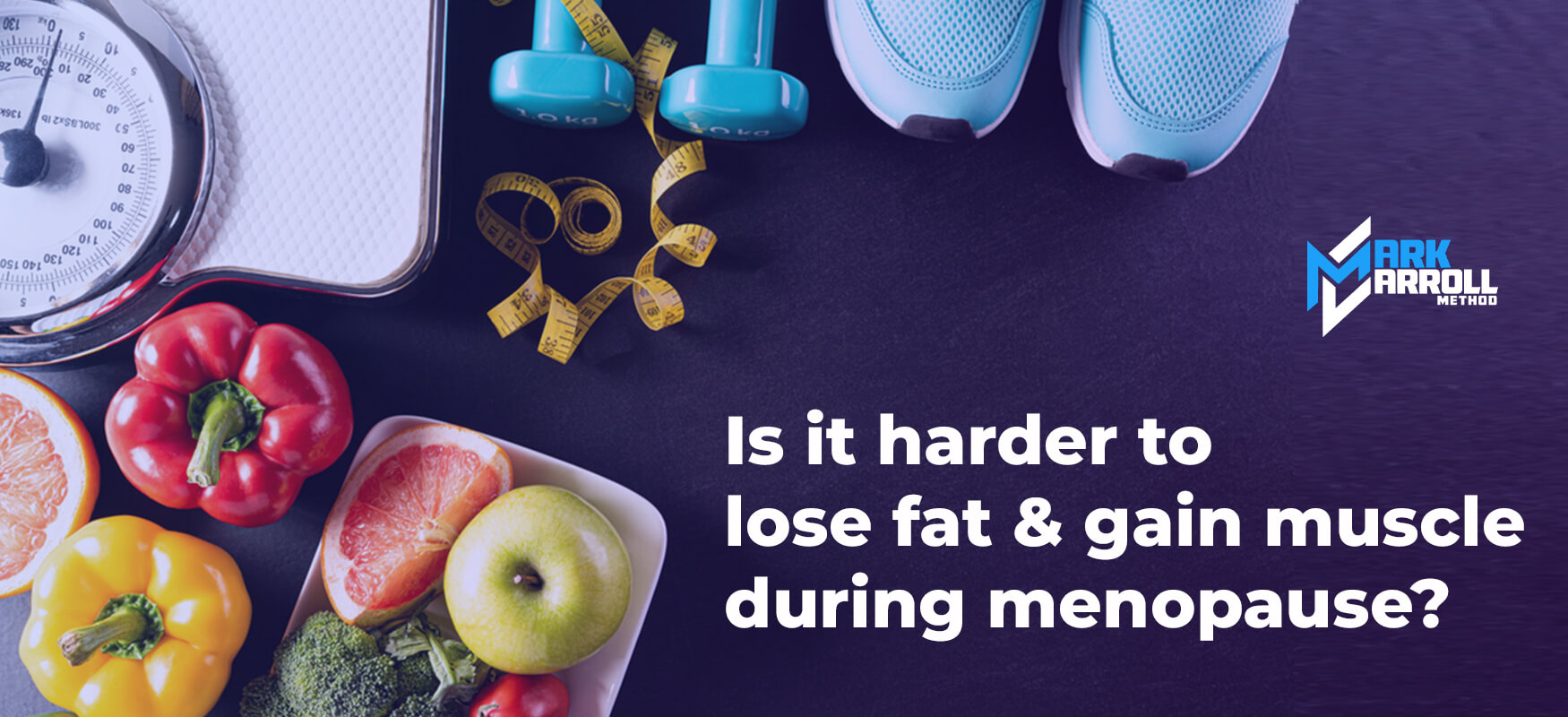Is it harder to lose fat & gain muscle during menopause?

Is it harder to lose weight during menopause?
I wanted to kick off this week’s blog with a topic I know many of you will find so valuable. Mark and I have seen many epic transformations in women in their 40s and 50s. It couldn’t make us both happier and more excited to see women owning their power and building physiques they never thought possible. But unfortunately, so many people are under the assumption that your metabolism slows down as you get older, and it’s harder to build muscle. So because I love myth-busting so much, I thought I’d bring this into this week’s blog. I hope the knowledge you learn throughout this blog empowers you to know that it’s never too late to work toward your best physique or start lifting heavy sh*t!
What is menopause?
Transitional menopause is a natural decline in hormone production that typically begins around 45-55 years of age. This decline in hormone production is a gradual process that happens over 7-14 years. A woman may experience symptoms such as hot flushes, moodiness, irritability, depression or a combination. Some women don’t experience any of these side effects, which might surprise you because Hollywood movies do a great job at portraying the moody woman who is excessively sweating as though she were in a sauna 24/7. Actual menopause occurs 12 months after a woman’s last period.
The transitional period of menopause (aka perimenopause)
The transitional period is where a woman will experience most of the physiological changes that occur when she reaches menopause which can impact her behaviours, health and lifestyle. The transitional period also increases a woman’s risk of losing lean body mass and increasing fat mass, which shows that many metabolic changes occur during this perimenopausal window. This doesn’t automatically equate to a woman’s metabolism ‘slowing’ down. It just means that she is at higher risk of losing lean body mass if she doesn’t engage in resistance-based training and eats in a surplus.
Does menopause directly lead to weight gain?
Simply put, no. There is a common understanding that menopause leads to weight gain because it slows down your metabolism. To understand what metabolism is you have to understand what Total Daily Energy (TDEE) expenditure is. TDEE is a sum of:
- Basal metabolic rate: the number of calories your body requires to maintain basic life-sustaining processes such as breathing and keeping your heart beating.
- Thermic effect of feeding: the amount of energy it takes to metabolise and digest your food.
- Exercise activity thermogenesis: the number of calories you burn during planned exercise.
- Non Exercise Activity Thermogenesis: the number of calories your body burns during subconscious movements like blinking or fidgeting.
How does perimenopause impact metabolism?
Perimenopausal women are at greater risk of losing lean body mass and having higher levels of fat mass because of the changes in estrogen levels. Lower lean body mass levels can directly impact your BMR because muscle is metabolically more expensive to maintain than fat mass. But people tend to overestimate the impact this has on metabolism. Just not to the degree that people believe. Yes, muscle costs more from an energy standpoint but not to the degree that you burn hundreds of calories extra per day just because you have more muscle mass. This means your metabolism isn’t automatically downregulated by hundreds of calories per day just because you lose some muscle mass. But it’s a good idea to maintain or even gain muscle mass in perimenopause.
Does your metabolism slow down with age?
A study conducted by Herman Pontzer reported that when fat-free mass was equated, there was no difference in basal metabolic rate from a 20-year-old to a 60-year-old. However, the study did find that BMR does start to slowly decline after age 60. This finding might surprise you because anecdotally, many women (and men) report that it was easier for them to stay leaner in their younger years than their older counterparts.
So what’s the cause of this?
Interestingly our metabolism doesn’t ‘slow’ down between the ages of 20-60. But, we tend to become more sedentary than our 20-year-old selves. We walk less, work more sedentary jobs, and don’t exercise as often. This ultimately decreases the number of calories you expend, but it doesn’t reduce your metabolism.
All in all, this means that menopause doesn’t decrease your metabolism, and we simply tend to become more sedentary with age. This reduces our TDEE; therefore, we require fewer calories to maintain weight. Thus, weight gain can be attenuated if you consider this and change your nutritional habits or lifestyle to combat a decrease in total daily energy expenditure.
Practical takeaways to support yourself during perimenopause
- Ensure you recalculate your maintenance calories each time you enter a new life phase. Changing jobs and reducing the number of training sessions or steps you do per day are good reasons to recalculate your maintenance calories.
- Continue resistance training. Perimenopausal women are at a higher risk of losing lean body mass. Resistance training ensures that you maintain or even gain muscle mass.
- Ensure you are consuming enough calcium in your diet or consider supplementation. Lower levels of estrogen can affect bone mineral density. Calcium needs increase in peri and menopausal women.
- Ensure adequate levels of protein intake. Research shows that the older you get, the more protein you need to maintain muscle mass.
Yours in health,







